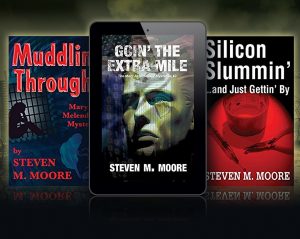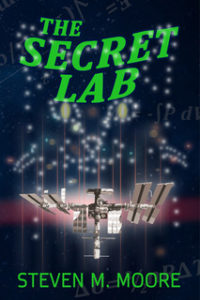Book Review of Hegarty’s Story of Ireland…
June 24th, 2020The Story of Ireland. Neil Hegarty, author (Thomas Dunne, an imprint of St. Martin’s Press). Ireland has an extensive literary tradition. On the bio page of my website, the second photo shows me at the Dublin Writers Museum. It’s a bit small and stodgy, but I enjoyed going there to read about the Emerald Isle’s famous writers. Who hasn’t read Swift, Yeats, Joyce, Wilde, Shaw, Synge, and the other Irish greats? Just from that sample, you’d think there’d be more good histories of Ireland written. But this small island’s history is so vast and its influence on England so important that it’s hard to imagine one book doing it justice. This is one, but it does it at the cost of emphasizing the political over the literary history. It probably should have been called A Political History of Ireland. (There’s a relation with a BBC documentary series I couldn’t quite understand.)
It covers a lot of that political history, though, from ancient Ireland with its Viking and Anglo-Norman influences to nearly the present day (it stops at 2011, so it can’t cover the effects of BREXIT, for example). For much of the book, it appropriately treatd the entire island as one, so it doesn’t distinguish Northern Ireland from the Irish Republic until the end, and that gives the reader a much better understanding of all the political currents that over centuries gave rise to the Troubles.
I learned some new facts too. Palladius brought Christianity to Ireland before Patrick, although the latter’s political astuteness and influence made him most remembered. Arthur Wellesley, Duke of Wellington, was Irish (is Wellesley, a town in Massachusetts with a famous college—Hillary Clinton went there—named after him?). James Collins, of the Easter Uprising, faced the British firing squad sitting down—he’d crushed his leg in battle. And that other Collins, Michael, was killed near Cork at thirty-one. I have to wonder if social reforms would have come sooner if he’d lived as long as Éamon de Valera—this Collins was a Social Democrat in the style of many current leaders in Europe, at least in those countries differing from Hungary, Italy, and Poland, which are essentially fascist states now.
The author does as good a job as can be expected in condensing Irish political history into one book. The prose flows like a novel. It was more entertaining than a lot of the fiction I’ve perused in these days of pandemic too, and if the associated documentary ever made it to PBS, I’m sure it was better than that stuffy, silly Downton Abbey.
***
Comments are always welcome.

Prequel cameos. Sometimes characters from already existing novels clamor for their own…and my muses (really banshees with Tasers) listen to them! Esther Brookstone and Bastiann van Coevorden of the “Esther Brookstone Art Detective” series are examples, in this case thanks to “Detectives Chen and Castilblanco.”
Esther appeared in The Collector and Bastiann appeared in both Aristocrats and Assassins and Gaia and the Goliaths. Esther’s prequel cameo is part of the story of how stolen art can be used to finance other evil activities, in this case porn videos. Bastiann’s first prequel cameo occurs when Castilblanco, on vacation with his wife, gets involved with a terrorist who’s kidnapping European royals. His second occurs when he’s helping track down the murdering head of an energy conglomerate.
You don’t need these cameos to understand Esther’s series, but they’re evergreen books you will have fun reading. Available on Amazon and Smashwords and all the latter’s affiliated retailers (iBooks, B&N, Kobo, etc.) and library and lending services (Scribd, Overdrive, Baker & Taylor’s, Gardners, etc.). “Reading gives us someplace to go when we have to stay where we are.”—Mason Cooley.
Around the world and to the stars! In libris libertas!





 The flowers sprinkled around this post prove spring has sprung. I hope they improve your mood. They improved mine, which has been slapped around a bit after the pandemics caused by COVID-19 and the murder of George Floyd. That first pandemic is dwindling here in the NYC area, which is no longer the world’s epicenter—Brazil is. That second pandemic is still going on as I write this.
The flowers sprinkled around this post prove spring has sprung. I hope they improve your mood. They improved mine, which has been slapped around a bit after the pandemics caused by COVID-19 and the murder of George Floyd. That first pandemic is dwindling here in the NYC area, which is no longer the world’s epicenter—Brazil is. That second pandemic is still going on as I write this.
 These are good thoughts to have in these troubled times. Spring is full of hope. We called it an Arab spring because there was hope for democracy in the Middle East; we now call what’s happening there the Arab winter. Darkness and despair are associated with winter; lightness and hope with spring.
These are good thoughts to have in these troubled times. Spring is full of hope. We called it an Arab spring because there was hope for democracy in the Middle East; we now call what’s happening there the Arab winter. Darkness and despair are associated with winter; lightness and hope with spring.